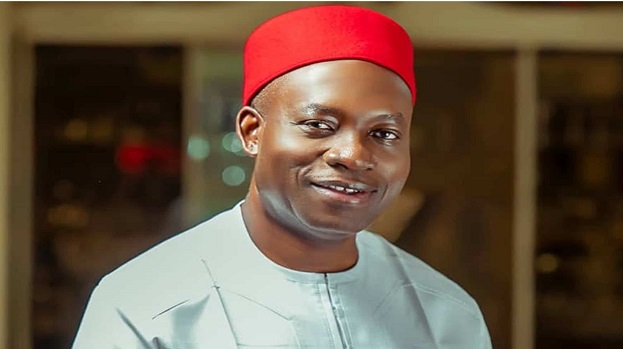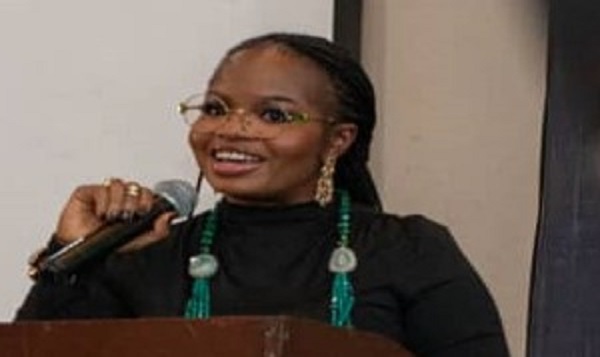News
Why We Sacked Some Staff- Exxon Mobil

Exxon Mobil Corp, has confirmed plans to lay off an unspecified number of employees as low oil prices force the company to delay major projects, Darren Woods, its chief executive officer, said in an email to staff.

Woods also mounted an extensive defense of fossil fuels, calling them a “higher purpose” that aids global prosperity at a time when European peers are looking at renewables as the future.
“These are difficult times,” Woods said in the message, the text of which was released by the company on Wednesday. “We are making tough decisions, some of which will result in friends and colleagues leaving the company.”
The oil behemoth’s job cuts are just the latest sign of struggle among U.S. energy producers navigating the industry’s worst downturn in recent memory.
This week two high-profile mergers were announced as explorers seek to gain scale and cut costs to survive the devastating impact of COVID-19 on global demand for fuel. Many have succumbed to bankruptcy.
Exxon’s stock has plunged 52 per cent this year and the company all but ended its aggressive, $30 billion-a-year counter-cyclical growth strategy.
The company was forced to slash its capital spending budget by a third, or $10 billion, after crude dropped to the lowest in a generation.
Rivals such as BP Plc and Chevron Corp. have also announced large layoffs in recent weeks.
“Our plan is to continue to stage project execution and spending,” Woods said.
“Making the organisation more efficient and more nimble will reduce the number of required positions and, unfortunately, reduce the number of people we need.”
But Woods was clear that the cutbacks are not a sign that his faith in oil and gas is in any way diminished. “Fossil fuels will remain about half of the global energy mix by 2040 and often provide the most cost-effective pathway to development in poor countries, especially those in Africa and Asia,” Woods said.
“We often talk of companies having a higher purpose,” he said. “Well, I can think of no higher purpose than helping people and communities around the world grow in prosperity and achieve their aspirations for a better life through affordable energy.”
Most of Europe’s large energy companies have adopted aggressive targets to become carbon neutral by mid-century, in part involving big investment in wind, solar and battery storage. Exxon, under Woods, won’t be taking this course.
Renewables on their own are not enough to solve climate change, according to Exxon, which claims to be focusing on novel technologies in partnerships with universities and start-up businesses.
“Today’s alternatives don’t consistently offer the energy density, scale, transportability, availability — and most importantly — the affordability required to be widely accepted,” he said.
The stance appears to be at odds with a growing trend this year. Just last month China pledged to be carbon neutral by 2060, a shift that would set into motion a drop in oil and gas consumption, a to government-affiliated researchers.
News
LIRS to Invoke NTAA to Recover Unpaid Taxes from Bank Accounts, Others

Lagos Internal Revenue Service (LIRS) pursuant to Section 60 of the Nigeria Tax Administration Act (NTAA), plans to ask Nigerian banks to debit bank accounts of employers who failed to remit tax liability.

This was disclosed in a recent notice on Sunday.
LIRS stressed that the move was in line with the implementation of the country’s NTAA and other new tax laws, which took effect on January 1, 2026.
“Where a taxpayer fails, neglects, or refuses to settle any established outstanding tax liability when due, LIRS may exercise its power under Section 60 to direct any of the following persons to pay the amount owed by the taxpayer:
“Banks and other financial institutions; Employers; tenants, debtors, or customers of the taxpayer; Agents, business partners, and any person holding money on behalf of the taxpayer; Any person owing money to the taxpayer, whether presently due or accruing. Once a substitution notice is issued, the person served is statutorily required to remit to LIRS the amount. Specified in the notice from funds belonging to, or payable to, the defaulting taxpayer,” the LIRS notice partly read.
Meanwhile, Taiwo Oyedele, chairman of the Presidential Committee on Fiscal Policy and Tax Reforms, weeks ago ruled out claims that the government would debit personal accounts over tax remittances.
News
Anambra Cuts Monday Pay to Kill Sit-at-Home

Anambra State will implement pro-rata salary payments for civil servants starting February 2026, targeting chronic Monday absenteeism from the long-running sit-at-home order, Information Commissioner Dr. Law Mefor announced Saturday.

Soludo
Speaking at an Awka briefing after the Executive Council’s end-of-tenure retreat, Mefor said improved security and transport have eliminated excuses for the four-year disruption, which cost the state trillions in lost revenue. “Workers enjoyed full pay despite staying away; now, no work means no pay for that day, calculated over 24 working days,” he stated.
Compliance measures include mandatory Monday clock-in forms, with markets urged to reopen fully amid bolstered security. This builds on a January 22 executive order docking 20% pay from teachers absent on Mondays.
Mefor warned that lost Mondays cripple revenue collection and productivity, rejecting alternatives like Saturday shifts as capitulation to agitators.
News
Stakeholders Demand Stronger Governance and Infrastructure to Drive Tech Adoption @ Lagos AI Summit

As AI adoption accelerates across Nigeria, leaders at the “AI in Action Now” conference 2026 have called for a balance between rapid innovation and strict regulatory governance. The event, held at the Lagos Oriental Hotel, highlighted both the doggedness of Nigerian builders and the risks of unregulated data usage.

Dotun Adeoye, Co-Founder of AI Nigeria, raised alarms over “Shadow AI”, a trend where employees upload sensitive official documents to public AI platforms. He praised the Nigerian Data Protection Commission (NDPC) for its recent aggressive stance, including multi-million-dollar fines against major banks and social media brands.
“Innovation without governance is dangerous. The regulator now has the job of educating players. We are working in partnership with them to ensure players don’t just get fined, but actually understand how to protect data locally rather than storing it abroad, ” Adeoye noted.
Addressing issues of lack of infrastructure to carry AI adoption, Conference Convener Debola Ibiyode admitted that while Nigeria lacks the traditional foundation for AI adoption, the tech community cannot afford to wait.

“The simple answer is we don’t have the infrastructure, but Nigeria has never really had infrastructure to drive anything, and we still thrive, ” Iboyode said, encouraging students and builders to look beyond current limitations. “Once we start to build based on what we have now, it will encourage those who need to provide the infrastructure to do their part. The world will not wait for us,” she insisted.
To bridge this gap, she highlighted the AI Foundry Africa, an incubator designed to mentor ideas into market-ready products.
Meanwhile, speaking to journalists on the sidelines, Biodun Ogunleye, the Lagos State Commissioner of Energy and Mineral Resources, echoed the sentiment that the government’s role is to facilitate the right environment through partnership. He emphasized that data generated from interactions with the government must have long-term value.
“We must ensure that in all facets from production to interaction with government, the tools required to ensure data has value are appreciated,” Ogunleye stated.
He concluded that through private-sector collaboration, the government can focus on its primary functions while leveraging AI to ensure the nation aspires for the future.

 General News3 days ago
General News3 days agoPalmPay User Shares Experience on Fintech Apps to Trust in Nigeria

 News3 days ago
News3 days agoStakeholders Demand Stronger Governance and Infrastructure to Drive Tech Adoption @ Lagos AI Summit

 General News3 days ago
General News3 days agoNigerians Target Self-Improvement, Business Startups in 2026 Google Data

 News3 days ago
News3 days ago35 Million Nigerians Face Acute Hunger in 2026, UN Warns

 General News3 days ago
General News3 days agoHow Inside Jobs and Policy Shocks Trigger Nigeria’s Rising Loan Crisis

 News22 hours ago
News22 hours agoAnambra Cuts Monday Pay to Kill Sit-at-Home

 E-Financial22 hours ago
E-Financial22 hours agoFirst Asset Management Receives Upgraded Ratings from Agusto &Co and DataPro

 General News22 hours ago
General News22 hours agoNigeria Treats Religious Violence as Attack on State – NSA Ribadu

























